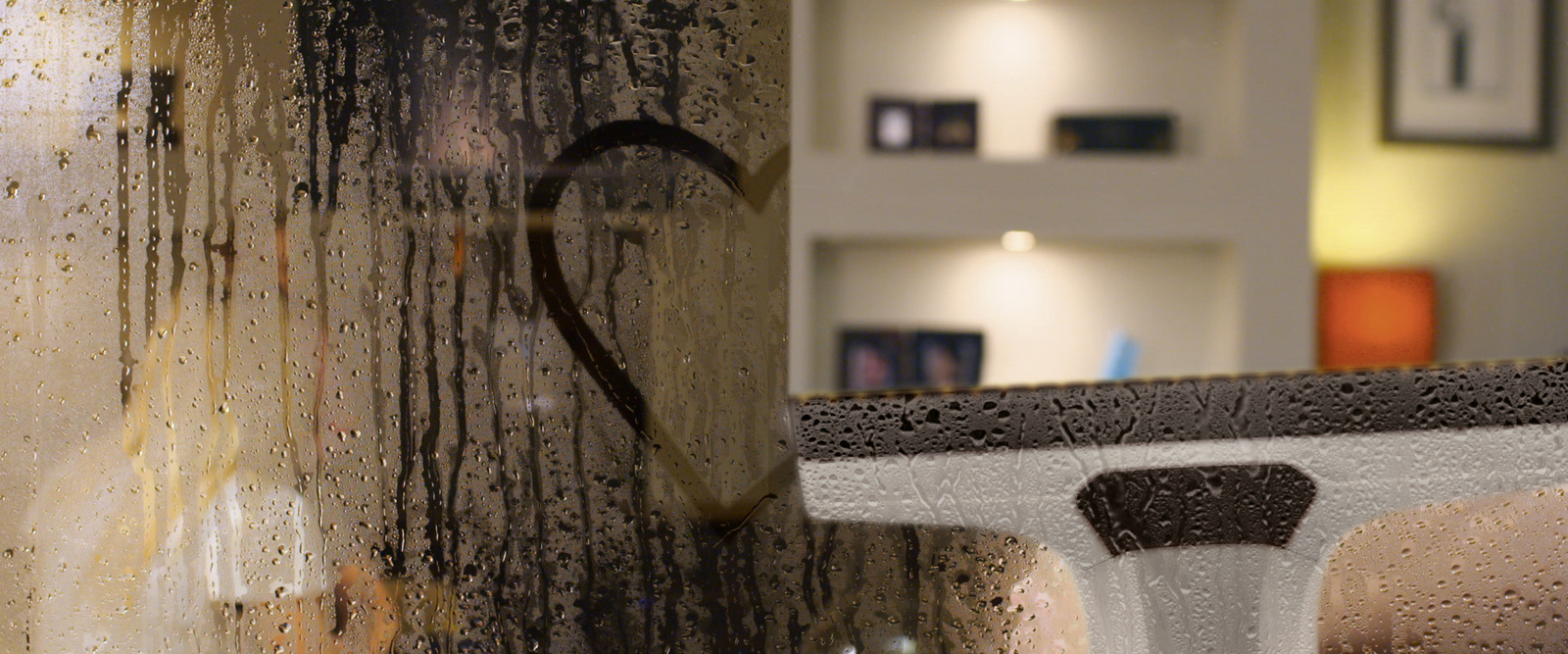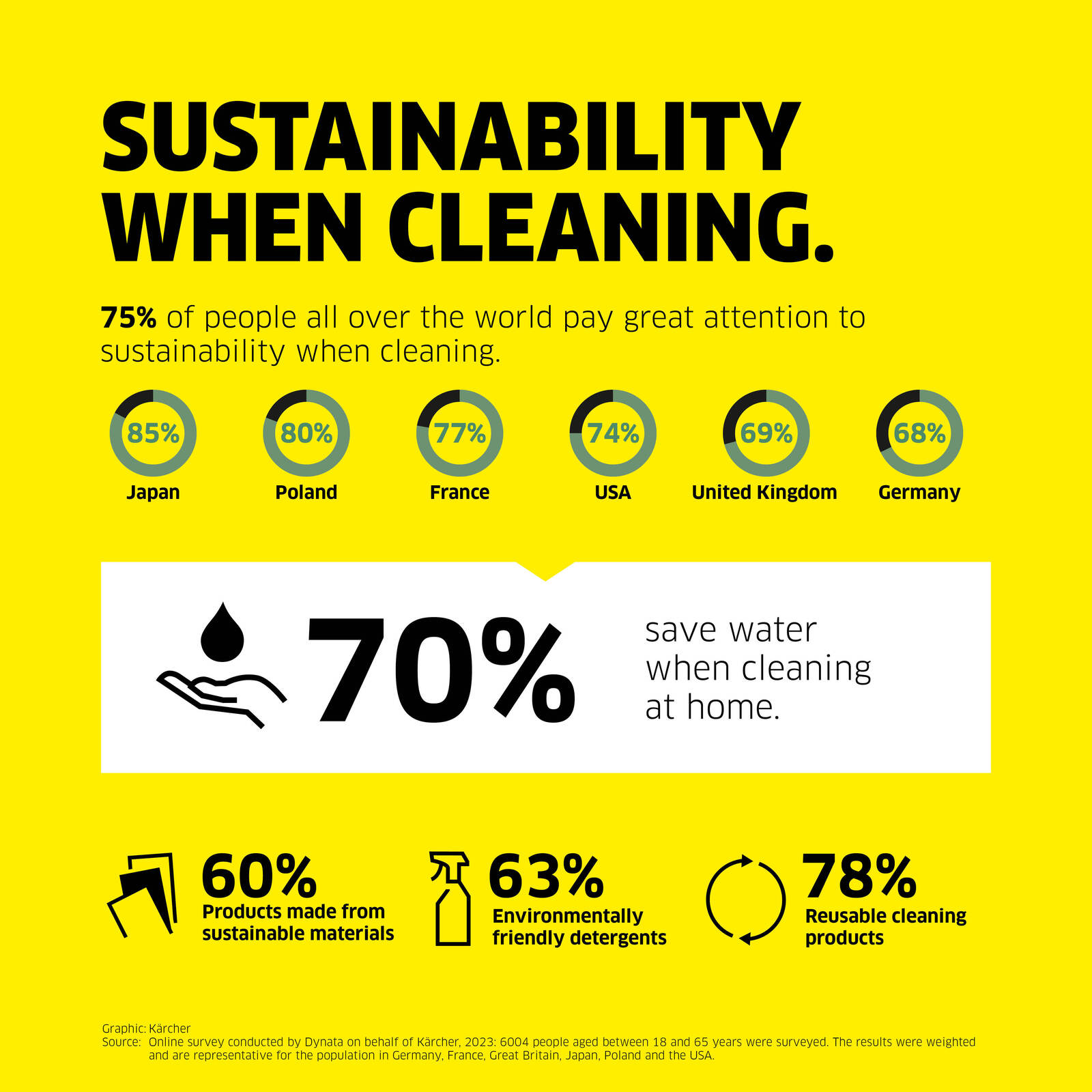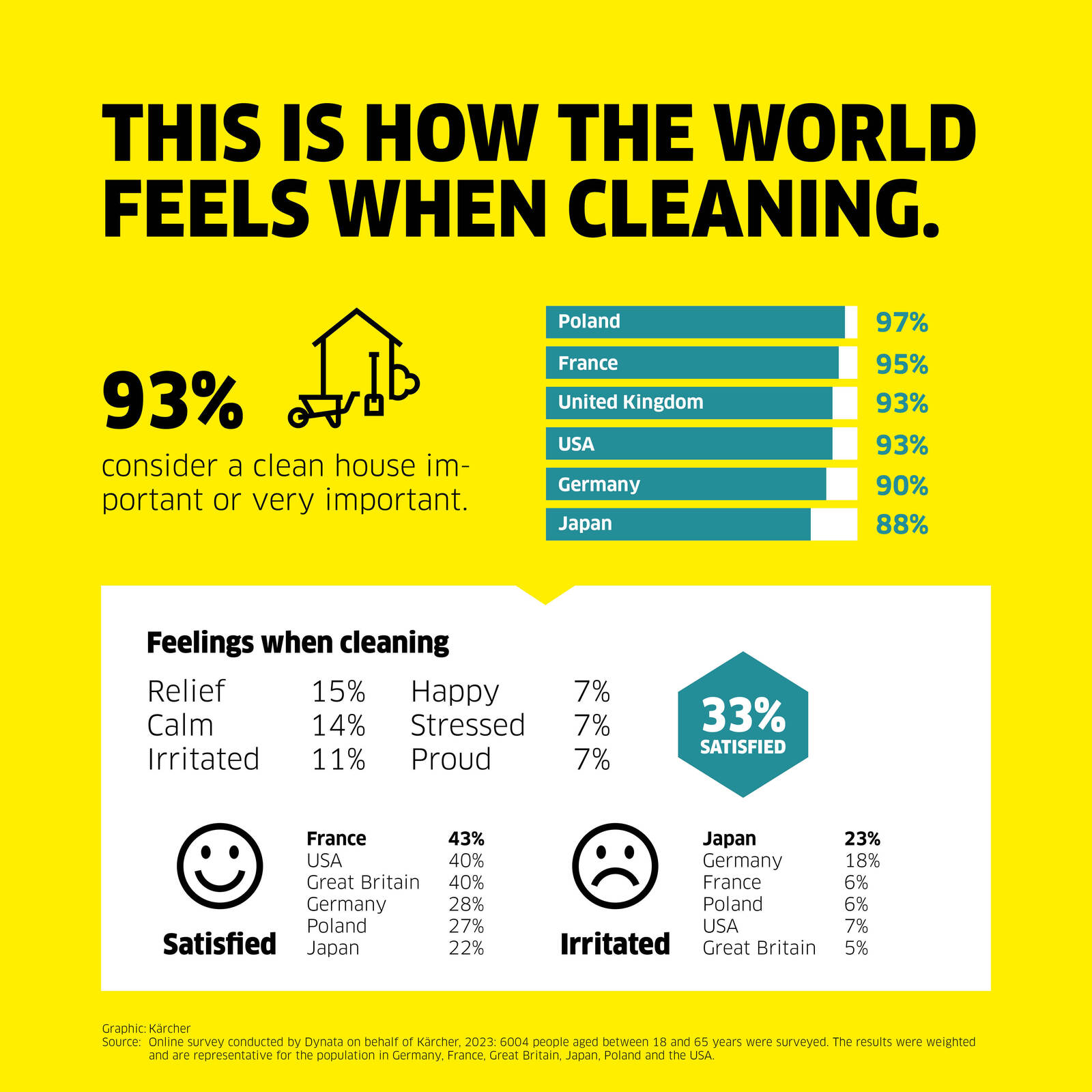Kärcher Cleaning Study 2023
We asked over 6,000 people around the world about their cleaning habits and gained some exciting insights. The topic of cleaning evokes a wide range of feelings in households around the world - from satisfaction to stress. However, there is unanimity when it comes to sustainability: 75% of those surveyed consider environmentally friendly cleaning to be a key concern. In our study, we found out what else people pay attention to when cleaning their homes.

The international comparison of cleaning preferences in six countries shows major differences between regions and genders. Cleanliness is highly valued worldwide. The latest Kärcher cleaning study also reveals that sustainability is a global priority when it comes to cleaning and that cleaning is perceived as satisfying internationally – the French are the happiest. In Germany, cleaning is mainly done when visitors arrive – men bless the house.
From Tokyo to Berlin – An international comparison of the importance of sustainability

Sustainability is becoming increasingly important in many areas of life. But what about cleaning our homes?
For 75 per cent of respondents, sustainability is a key consideration when cleaning. More than half (52%) are in favour of environmentally friendly cleaning methods. However, there is a notable difference between the generations in all countries: in the 18 to 24 age group, 84 per cent say that sustainability is important to them when cleaning, compared to 69 per cent in the 55 to 65 age group. Japan places the most importance on sustainable cleaning, with 85 per cent of respondents stating that they think about the environment when they clean.
When it comes to cleaning, one of the single most important environmental topics is how to save water. More than two thirds (70%) of respondents make sure they use as little water as possible when cleaning at home. The use of environmentally friendly detergents is also very popular: almost two thirds (63%) of respondents worldwide are in favour of this.
Cleaning makes people happy – the French are the happiest
How do people around the world feel when they do the housework?
For the vast majority of respondents (93%), it is important or very important that they live in a clean home. At 90 per cent, Germany is in the middle of the pack internationally. The country that places the most importance on cleanliness is Poland (96%).
Internationally, satisfaction is the most common feeling caused by cleaning: 33 per cent worldwide feel satisfied once the work is done. The sense of satisfaction is strongest in France, where almost half of those surveyed (43%) find household chores make them feel good. In the UK and the USA, 40% share this view. Germany (28%), Poland (27%) and Japan (22%) bring up the rear.
In some countries, however, cleaning is also associated with negative feelings: around 23 per cent of Japanese respondents find cleaning an annoyance – and in Germany too, very few respondents (6%) feel happy when cleaning. They find cleaning their own home either tedious (18%) or stressful (13%), which also represents the highest stress rate in an international comparison.

Technology is gaining in importance among the younger generation
The survey also reveals that there are differences between the generations in terms of what they expect from technology and how they use it. 25 per cent of respondents aged 18 to 25 believe that smart machines make life much easier and save time. In the 55 to 65 age group, that figure is 11 per cent. However, across all generations, more than half of respondents (56%) believe that autonomous machines make housework easier. What's more, younger people attach great importance to keeping up with the latest technological trends in the household sector. In the 18 to 24 age group, 42 per cent agree with this statement, whereas the figure drops to just 14 per cent in the 55 to 65 age group.
About the survey
The data used is based on online surveys carried out by Dynata, in which a total of 6004 people aged 18 to 65 took part in August 2023. The survey was nationally representative – with quotas for gender, age and region. The survey was conducted in Germany, France, the UK, Poland, Japan and the USA


